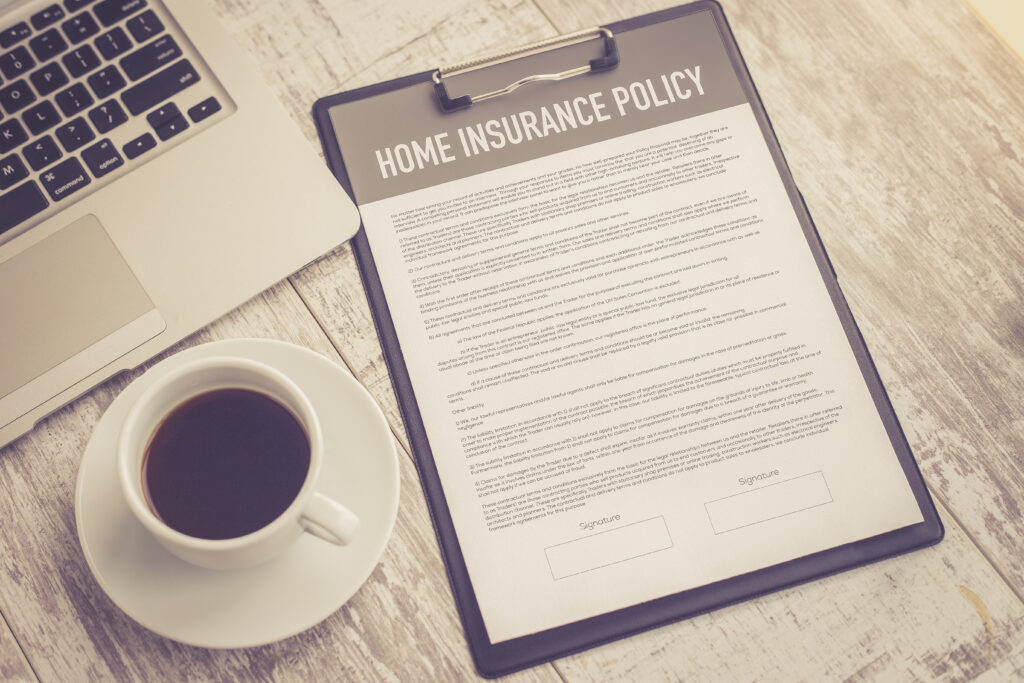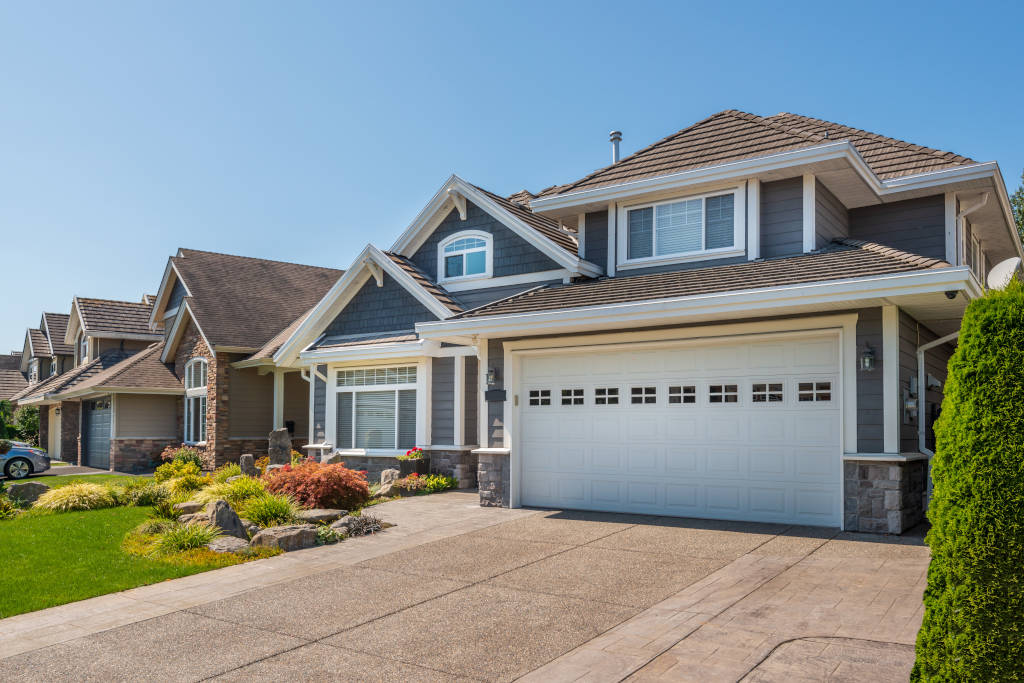Owning a home can be exciting and empowering. But it also carries a lot of responsibility. It’s critical to make sure you have the right protection for your house and all the valuable things inside. This is where homeowners insurance comes in.
Homeowners exists to cover your property from unforeseen dangers, losses, or expenses. Fires, burglaries, and natural disasters are just some of the things that can threaten it. However, liabilities, such as those when someone gets injured on your land, can also put your finances in danger. Home insurance simply gives you a layer of protection for your house and wallet.
Having homeowners coverage can save you from needing to pay thousands out of pocket for damages or losses. Though no state requires it by law, banks or lenders will make you purchase home insurance if you’re mortgaging your house.
Like all other forms of insurance, homeowners may seem complicated. You may wonder things like whether you need it, how much it costs, or what exactly it covers. In this article, we’ll dive into the essentials of home coverage. We’ll go over:
- How homeowners works
- Whether you need it
- What it does and doesn’t cover
- Endorsements and riders
- Types of policies
- How much it costs
- Types of reimbursement
- Frequently asked questions
How Homeowners Insurance Works
Homeowners coverage is a type of policy you can get that protects your buildings on your property and belongings. In the event of an accident, your home insurance will help replace or pay for the damages or losses to your house or personal items caused by specific dangers called “named perils” by insurers.
Home insurance also takes care of liabilities due to accidents or injuries that happen on your property. Imagine that your neighbor comes over to talk to you. Suddenly, they trip and hurt themself. In this case, your homeowners policy will step in to cover any expenses from your neighbor’s injury.
Who Needs Home Insurance
No state requires home insurance. But most banks will require you to have it if you have a mortgage. They do this to ensure the protection of the asset for which they gave you a loan. Without homeowners coverage, they could risk losing a serious amount of money.
Let’s face it, life happens. At any moment, something out of your control can cause damage to your house or threaten your way of life. Unless you can handle shelling out lots of money for emergencies, you’ll want to buy home insurance. The protection a homeowners policy can give you peace of mind and may only set you back a little. But random accidents and damages could set you back to the point of financial ruin.
What It Covers
Homeowners insurance provides a lot of coverage for your property. Here’s what it covers:
- Dwelling coverage. Protects your house and any other structures you have, such as sheds or garages.
- Personal liability coverage. Shields you from any liabilities or expenses from injuries or damage that occur on your property.
- Personal belongings coverage. This pays for damages or losses to any of your belongings after incidents such as a fire, storm, or even theft. Common examples of personal belongings include furniture, clothes, and technology.
- Loss of use coverage. Pays for any extra living or housing costs you have if you can’t live in your house because of damages it’s sustained. Note that it only covers expenses that exceed your normal cost of living.
When you read about home insurance coverage, you’ll likely see the word “peril” come up several times. This refers to the many types of things that could put your house in danger. Per the Insurance Information Institute (III), homeowners covers 16 named perils:
- Fire or lightning strikes
- Hail or wind damage
- Explosions
- Riots or other types of disturbances
- Damage from land vehicles and objects thrown out of them
- Damage from an aircraft
- Smoke
- Burglary or theft
- Vandalism
- Volcanic eruptions
- Falling objects
- Damage from the weight of ice, sleet, or snow
- Water damage due to faulty plumbing, sprinkler systems, heat or air conditioning, or appliances
- Cracking, bulging, or ripping apart of a faulty air conditioning, hot water, or fire system
- Freezing of a heating, plumbing, or any other water system
- Electrical damage
What It Doesn’t Cover
While homeowners can protect you and your residence from many types of dangers, there are certain types of incidents it won’t help you with. These are some of the most common causes of damage that a standard policy won’t cover:
- Flood damage
- Earthquake damage
- Natural foundation settling or ground movement
- Sewer backups
- Lack of proper maintenance of your house or property
- Damage by animals or pests
Though standard homeowners doesn’t include protection for floods or earthquakes, you can still add coverage for them as an endorsement or separate policy. This may be helpful if your lender requires it. Or if you live in an area that’s at a high risk of these natural disasters. You can typically get flood insurance with the National Flood Insurance Program (NFIP). You can buy an earthquake policy from most major insurers.
Endorsements and Riders
An endorsement or rider is a type of add-on or change you can make to your existing homeowners plan. The most common usage is adding additional coverage that’s not part of standard home insurance. You may want to get an one if you want protection for a certain peril, like earthquakes, that your policy doesn’t cover.
Different Types of Homeowners Policies
How much coverage you receive can vary in large part due to the type of policy you select. You’ll have to select one type when you buy your home insurance. These forms usually appear with a number, such as HO-1 or HO-5. Each one either covers a different number of perils or serves a unique purpose.
Sometimes known as the “special form,” HO-3 is the most common out of all the different types of policy forms, according to the National Association of Insurance Commissioners (NAIC). It covers all 16 perils unless your provider decides to omit any of them. It also includes all the most basic types of protection of standard homeowners.
Another policy you can choose is HO-1, which is the most basic option available. It’s more limited than HO-3, only giving you coverage for up to ten perils. It may also be hard to get since many insurers don’t even offer it.
You can also get an HO-5 policy. It’s like HO-3 in that it covers all 16 of the perils. But it also includes extra benefits such as more coverage for expensive houses and personal property. You should note that you might only be able to get an HO-5 if you’ve just bought a recent or new home. An HO-5 will also be much more expensive than a standard HO-3.
How Homeowners Reimburses You
You may wonder about how your homeowners insurance reimburses you for damages to your house after you file a claim. The answer isn’t cut and dried. It can be different depending on how much coverage you have.
When you buy homeowners, you’ll have to choose a coverage level. What you select will affect how your insurer reimburses you for an incident. Typically, you’ll need to choose between your home’s replacement cost or actual cash value (ACV).
If you choose replacement cost, your insurer will pay you an amount of money that’s equal to the value of your home or any lost belongings so that you can replace them. It doesn’t take any depreciation or any other loss of value into account. All you’ll have to pay is your deductible.
On the other hand, ACV will pay the amount of money necessary to replace your home and items, minus any depreciation. This means that, even if you paid a certain amount for an item, your insurer would only look at what it was worth at the time of the accident. Many insurers will use factors about items such as their age to figure out the depreciation. Like replacement cost, you’ll only have to pay your deductible.
How Much Homeowners Costs
The cost of homeowners insurance can vary depending on several factors. And many companies likely have different prices or look at different things when deciding your rates. In general, you can expect to pay more if you appear to be at a high risk of filing claims.
The type of policy and coverage you get. Some policies can come with more protection and can lead to higher rates. Other policies come with less but can be more affordable. Extra coverages such as endorsements can also make your insurance more expensive.
Claims history. Filing more claims in a short period costs your insurer more money. It’s likely your rates will reflect that.
How high you set your deductible. Setting a higher deductible can lower rates since you assume more risk if a peril affects your house. But if you have a lower deductible, your insurer will charge you more for the increased risk they have to take on.
Where you live. Home insurance rates can be higher if you live in an area with a high crime rate or that’s at risk of accidents and natural disasters.
Credit score. Your credit history can reflect your reliability as a customer or homeowner. You could pay more if your insurer thinks you have a spotty past.
Features about your home. Certain features about your house can shift your rates. For instance, having a security system could help lower your rates because it prevents danger. But owning a owning a swimming pool could be a potential hazard for yourself or your guests and raise your premium.
It’s important to remember that how much you pay with one company may not be how much you’ll pay with another. It’s always a clever buying strategy to compare home insurance prices between insurers if you suspect you’re paying too much. You never know, the right deal for homeowners coverage could be elsewhere.
Frequently Asked Questions
Why do I need homeowners insurance?
Homeowners insurance can shield your house and finances when disaster strikes. Without it, you’d need to pay out of pocket to replace your house or the items in it. It’s not required by any state, but many mortgage lenders require coverage to prevent significant financial losses.
What does home insurance cover?
Homeowners insurance protects you in four important ways: The first is obvious, your house. It’s a no-brainer that this sort of coverage would in some way pay for damages to your house. Personal liability is also included in a standard policy. Your personal belongings are also covered wherever you take them, including when you’re on the road. Finally, when you can’t live in your home while it’s being repaired, loss of use pays for temporary living arrangements until the work is completed.
What isn’t covered by a homeowners policy?
Insurers are very specific about the 16 named perils a homeowners policy covers. They are even more particular when it comes to what your home insurance won’t pay for. They are, in no particular order: earthquakes, floods, sewer backups, landslides and foundation settling, animals and pests, and lack of maintenance. You can often purchase supplemental coverage for some of these. Ask your agent for details.
How much coverage should I buy for my home?
How much home insurance you should buy largely depends on many things. You should begin by asking yourself how safe your house is from potential perils. For example, if you live somewhere with lots of crime or natural disasters, you may want to buy more protection. It’s always a good idea to buy as much as you can afford. More coverage can sometimes mean that you’re spending more money, but it can also give you some peace of mind.


